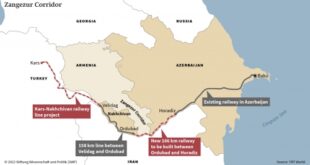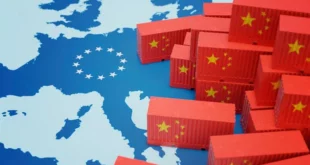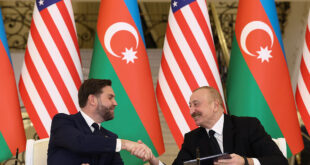 BARNAUL, Russia (Reuters) – Russians voted on Sunday in a parliamentary election widely viewed as a referendum on President Vladimir Putin and overshadowed by opposition accusations that pro-Kremlin forces enjoy an unfair advantage.
BARNAUL, Russia (Reuters) – Russians voted on Sunday in a parliamentary election widely viewed as a referendum on President Vladimir Putin and overshadowed by opposition accusations that pro-Kremlin forces enjoy an unfair advantage.
Pollsters say Putin’s United Russia party will win an overwhelming victory and secure more than 60 percent of seats. More than 100 million Russians are eligible to vote in the election, being held in sub-zero winter temperatures.
The predictability of the result and lack of debate on key issues have led to apathy among voters, prompting an official drive to increase the turnout.
“I voted for Putin,” 68-year-old pensioner Valentin Nenashev said after casting the first ballot at polling station No. 130 in Vladivostok, Russia’s gateway to the Pacific and a naval base. “I voted for a better life, for stability.”
Putin, 55, is by far Russia’s most popular politician after presiding over eight years of an economic boom. He aims to retain influence after stepping down as president in early 2008 and says a strong mandate from voters will give him that right.
The first of about 96,000 polling stations across the sprawling nation opened in the northeastern province of Chukotka facing Alaska. Nine hours later, at 8 a.m. (12 a.m. EDT), voters began turning out in the capital Moscow.
With three hours of voting to go in Russia’s easternmost regions, turnout was 73 percent in Chukotka, well up on the 2003 election, and slightly higher in Kamchatka at 47 percent, election officials told a briefing.
“Voter activity is higher in all regions of Russia than it was in the 2003 election,” Central Election Commission Chairman Vladimir Churov said. Two hours after voting opened in Moscow, national turnout was 5 percent.
“I’m voting for United Russia. They’ll give political stability,” said Vladimir Minayov, who was among 30 voters to turn out in the first hour at Moscow’s School No. 1529, where over 1,000 voters were registered.
Another man said he had voted for liberal opposition party Yabloko and a woman for the Communists — although she would have cast her vote “against all” candidates had that option not been removed from the ballot for this election.
HOLIDAY ATMOSPHERE
Across Russia, election organizers created a holiday atmosphere redolent of one-party Soviet-era polls, setting up stalls offering cheap food and clothing to attract voters.
In Barnaul, in the Altai region of Siberia, the “White Bears” winter swimming club took a dip in the icy waters of the local river before going together to vote.
“Cold water invigorates. We are making our choice with a healthy body and healthy mind,” said White Bears chairman Alexander Zelyenetsky, who cast his vote for United Russia.
Increasingly marginalized opposition parties have said numerous election rule changes, heavily skewed media coverage, repeated instances of government pressure on voters and Putin’s own campaigning have made the contest unfair.
Publication of opinion polls is banned in the days before the vote but pollsters say the Communists are the only party other than United Russia assured of exceeding the 7 percent threshold to qualify for seats in the new Duma.
Putin has said the elections will be completely democratic. He has attacked foreigners for “poking their snotty noses” into Russia’s internal affairs and accused opposition politicians of being stooges for Western powers.
The West’s main election watchdog, the ODIHR, will not be monitoring the vote. It pulled out after a row with Moscow over delays in issuing visas.
Only about 300 foreign observers, roughly half of them from former Soviet republics, have been accredited for the election. The Kremlin says checks by foreign monitors are unnecessary because Russia has high standards of democracy.
The predictable result of Sunday’s vote and a dull campaign lacking debate on key issues have generated apathy among voters. This has sparked an official push to get the turnout up to at least the 56 percent figure in the last Duma election in 2003.
Last-minute efforts to boost participation were being made across the country, with mobile phone companies sending text messages to subscribers telling them to vote and some state companies ordering staff to cast ballots between work on Sunday.
 Eurasia Press & News
Eurasia Press & News



